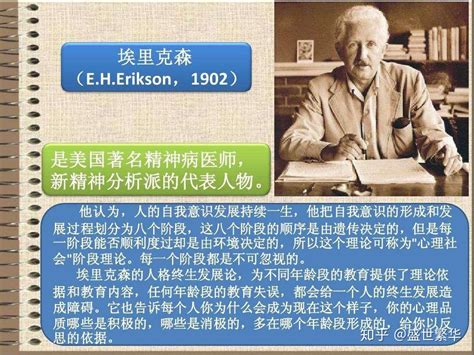发展心理学成长报告
Title: Understanding the Dynamics of Growth and Development in Psychology
Understanding the Dynamics of Growth and Development in Psychology
Understanding the complexities of human growth and development is essential in psychology. It encompasses various theories, stages, and factors that influence an individual's progression from infancy through adulthood. Let's delve into this fascinating field.
Several theories shed light on human development:
- Psychoanalytic Theory (Freud): Emphasizes the role of unconscious conflicts in shaping behavior.
- Cognitive Development Theory (Piaget): Focuses on cognitive processes and how they evolve over time.
- Social Learning Theory (Bandura): Highlights the importance of observation and modeling in learning.
- Ecological Systems Theory (Bronfenbrenner): Examines how various environmental systems impact development.
Human development can be categorized into distinct stages:
- Infancy: Characterized by rapid physical growth, sensory development, and the formation of basic attachments.
- Early Childhood: Marked by language acquisition, socialization, and the development of basic motor skills.
- Middle Childhood: Involves further cognitive development, peer relationships, and the growth of selfconcept.
- Adolescence: Signified by puberty, identity formation, and the search for independence.
- Adulthood: Includes stages such as early adulthood, middle adulthood, and late adulthood, each with its unique challenges and milestones.
Various factors shape human development:
- Genetics: Inherited traits influence physical and psychological characteristics.
- Environment: Social, cultural, and physical environments play crucial roles in shaping development.
- Parenting Styles: Different parenting approaches impact children's behavior and emotional wellbeing.
- Peer Influence: Peers serve as significant sources of socialization and influence during adolescence.
- Economic Status: Socioeconomic factors affect access to resources and opportunities, influencing development outcomes.
Understanding growth and development in psychology enables professionals to provide effective guidance and intervention:
- Educational Settings: Teachers can tailor instruction to suit the developmental needs of students, promoting optimal learning outcomes.
- Parenting Support: Offering parenting programs and resources can empower parents to create nurturing environments for their children.
- Counseling and Therapy: Therapists utilize developmental theories to address clients' concerns at various life stages, fostering psychological wellbeing.
- Social Policies: Policymakers can implement programs that support healthy development across the lifespan, addressing societal needs.

Understanding the intricacies of growth and development in psychology provides valuable insights into human behavior and functioning. By considering theoretical perspectives, developmental stages, and influential factors, professionals can offer effective guidance and support to individuals at different points in their lives.
